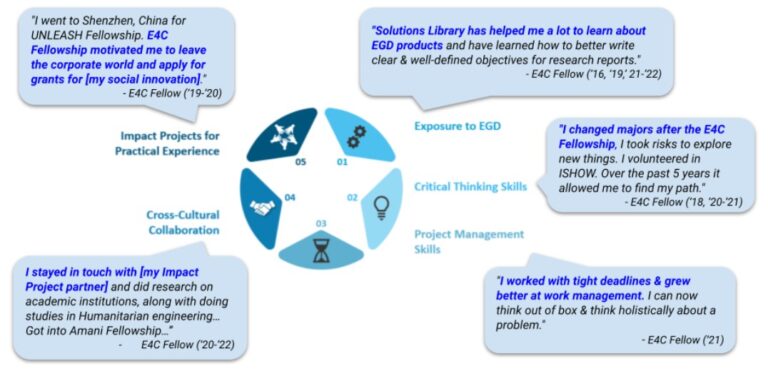Advancing E4C Fellowship Program Workflows
Since 2014, the Engineering for Change (E4C) Fellowship Program has grown and evolved from supporting seven Fellows contributing primarily to the Solutions Library to over 55 Fellows working on nearly 40 Impact Projects with partners in addition to adding to the Solutions Library in 2022. Additionally, for the Summer 2022 Fellowship alone, E4C received over 1,800 interested applicants. With this growth has come the need for scaling and improving current processes across the Fellowship. The objectives of this project were to support Engineering for Change with improving the efficiency of key programs, particularly advancing Fellowship program workflows. Specifically, this includes developing operation management templates and automation of processes related to recruitment and other management processes.
As part of this work, the Fellow assisted in the creation of management templates to be used by the management team, as well as the consolidation of Fellowship historical data in support of E4C’s impact tracking. Additional work included mapping the current recruitment process using Miro, indicating the individuals involved and the tasks required. New templates for recruitment were then developed, with automation added throughout.
Of the over 1,800 applicants for the Summer 2022 Fellowship, only a third of those who applied were women. Although this percentage is nearly double the global average for women in engineering (INWED, 2022), as an organization that values diversity, equity, and inclusion, E4C was interested in understanding potential reasons for the low percentage of women applicants and ways that they can encourage more women to apply in the future. As such, a short study was conducted to analyze E4C’s applicant data by the project, including skillset, education, and location requirements. While this analysis is ongoing, Figure 1 shows the breakdown of the average percentage of women applying to projects with specific software requirements.

Average percentage of women applicants for projects requiring software, Attribution: Maryam K. Ahmed
